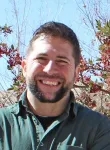(Press-News.org) Amsterdam, NL, March 22, 2021 - The COVID-19 pandemic has had a profound impact on our world, with disequilibrium, uncertainty, and human suffering making it difficult to envision a human, societal and individual future. Milan Zeleny, PhD, Professor Emeritus of Management Systems, Fordham University, New York, NY, USA, and world-recognized authority on decision making, productivity, knowledge management, and more recently the corporation as a living organism, says that "COVID-19 is rapidly changing from a cause to one of the symptoms of an increasingly unhinged world."
Writing in the journal Human Systems Management, published by IOS Press, Prof. Zeleny discusses the consequences of disequilibrium across business, political, and other systems and proposes new models that may help systems evolve to succeed in the future.
'Accelerating speed of change is a natural evolutionary phenomenon, originally noticeable over many generations and now emerging within a single generation. It is the most important causal factor of our disequilibrium, yet it is virtually ignored or misunderstood by science and philosophy," notes Prof. Zeleny. "The faster the new emerges, the more of the old that must be abandoned. This leads to resistance, political disruptions, and populist defense of the status quo. New and reliable Evolutionary Economics [a name coined by Prof. Zeleny for this new science] must be recognized."
Economic differences between nations are fast disappearing, while inequalities in terms of local and reginal economies are widening even faster. "Well balanced regional and local economies are the only assurance of a well-balanced country or nation as a whole. New and lasting improvements can emerge by not ignoring, but by respecting and enhancing natural evolutionary tendencies," explains Prof. Zeleny.
Other pressures Prof. Zeleny explores include conflicts between state intervention and self-organized natural response; an imbalance between rates of accepting the new and abandoning old; conflicts between the man-made and the naturally occurring world; and emerging needs for multidisciplinary education thinking, research, and action.
The most significant challenges to overcome include the protection of old paradigms, overcoming tendencies towards preserving status quo, or returning to the old "normal," especially for political reasons.
Prof. Zeleny reviews the management system concept he developed, known as the Zeleny ZIPF, or Rotary. It rotates and revolves around customer satisfaction to drive innovation, improve processes, and achieve financial success. He also draws on the experience of the Bata Management System, now celebrating (as BSO in India) its 126th anniversary, which was organized to behave as a living organism: learning, adjusting, and self-organizing.
Prof. Zeleny asserts that in a rapidly evolving environment, additional cultural traits should be acquired within a properly run ZIPF or a similar rotary management system. For example, rapid change does not allow for a traditional strategy; you have to handle the future. He calls this the Strategy of the first step. You take the first step, evaluate the impacts, and then take the next first step. It is like every day is the Day 1!
To achieve equilibrium in human systems, Prof. Zeleny introduces the idea of Integrated Productive Environments (IPE), in which regions, localities, and communities are allowed their economic independence, self-sufficiency, entrepreneurship, and innovative originality. Such independence and self-determination, he says, will lead to cooperation, coordination, and local exchanges of specific knowledge products and services, in the interest of continued self-enhancement.
The highest IPE would be a complete town: productive, flexible, modular, fully equipped to provide food, products, and services, all in the closest proximity to regional or local customers. The first such IPE town was the Bata-Zlín in Moravia, which was "exported" all over the world, and is still functional even today.
"Such orientation requires competent cooperation of many individuals, companies, and institutions at multilayered cultural, professional and knowledge levels," says Prof. Zeleny. "It is this kind of deep cooperation that is needed to restore regional and local equilibrium."
IPEs are also needed in education, government, healthcare, defense, and environmental protection. "As we are abandoning the old to embrace the new, we cannot remain the narrow specialists or 'experts.' We have to become multidisciplinary polymaths," he concludes.
Prof. Zeleny is the Founding Editor of Human Systems Management, which is celebrating its 40th anniversary in 2021. His article is the first in a new section of the journal, "Strategic revival of Human Systems Management." Editor-in-Chief Nada Trunk Širca, PhD, International School for Social and Business Studies, Euro-Mediterranean University, University of Primorska, Slovenia, explains that articles in the new section will address how the concepts raised by Prof. Zeleny can be woven into human systems management research and applications. "The journal will continue as a self-renewing, evolving entity, open to new paradigms, new technologies, timely adaptations, and trailblazing new authors from around the world," she says.
INFORMATION:
A University of New Mexico research team conducted a data analysis that has found that as a larger portion of the population gets vaccinated against COVID-19, it becomes economically advantageous to start relaxing social distancing measures and open businesses.
Francesco Sorrentino, associate professor of mechanical engineering, is lead author of "Data-driven Optimized Control of the COVID-19 Epidemics," published March 22 in Scientific Reports.
Co-authors of the study are Afroza Shirin of the Department of Mechanical Engineering and the Department of Electrical and Computer Engineering, and Yen Ting Lin, a staff scientist of the Information Science Group in the Computer, Computational ...
Despite the fact that viruses are among the simplest biological entities--consisting only of DNA or RNA encapsulated in a protein shell--they can have devastating consequences, with viruses such as influenza, human immunodeficiency virus (HIV), and Ebola having dramatically affected the course of human history. Because they generally lack the cellular machinery necessary to reproduce, they propagate by hijacking host cells, often to the host's detriment. While their status as a "living" organism may be in question, there is no doubt that viruses are shaped by evolutionary forces that influence their genomes, as well as their replication, host range, virulence, and other features. With the emergence of ...
The same process that drains the battery of your cell phone even when it's turned off is even more of a problem for lithium-metal batteries, which are being developed for the next generation of smaller, lighter electronic devices, far-ranging electric vehicles and other uses.
Now scientists at Stanford University and the Department of Energy's SLAC National Accelerator Laboratory have taken the first atomic-scale look at how this process, called "calendar aging," attacks lithium-metal anodes, or negative electrodes. They discovered that the nature of the battery electrolyte, which carries charge between the electrodes, has a big impact on aging - a factor that needs to be taken into account ...
The first documented record of salt as an ancient Maya commodity at a marketplace is depicted in a mural painted more than 2,500 years ago at Calakmul, a UNESCO World Heritage site in the Yucatan Peninsula in Mexico. In the mural that portrays daily life, a salt vendor shows what appears to be a salt cake wrapped in leaves to another person, who holds a large spoon over a basket, presumably of loose, granular salt. This is the earliest known record of salt being sold at a marketplace in the Maya region. Salt is a basic biological necessity and is also useful for preserving food. Salt also was valued ...
Two new environmental policy briefings, aimed at decision makers working on rapidly expanding urban areas in southern Africa, emphasise that local community voices must be included in the early planning stages to minimise ecological impacts.
Urban populations across the African continent and in particular the surrounding areas of urban sprawl, are forecasted to triple by 2050, resulting in higher rates of land conversion that have implications for managing significant environmental changes that lie ahead.
This expansion is happening faster than infrastructure changes can keep-pace, meaning that residents do not have access to important services to reduce the impact of climate-related events such as flooding, droughts, and heat-stress.
A new policy briefing, led by ...
RIVERSIDE, Calif. -- A University of California, Riverside, study analyzing fourth-generation electronic cigarette, or EC, pod atomizer design features has found the pod atomizers are similar to those of previous generations and contain elements that may adversely affect health and accumulate in the environment.
EC atomizers are chambers that hold nicotine-containing fluid and upon heating generate an aerosol. The pod-style e-cigarettes have become very popular, especially with young people.
The elements/metals in atomizers are important because chronic exposure could adversely affect human health. Further, EC pod products, which eventually enter the environment, could ...
Suppose you drop your morning coffee and it splatters everywhere. Later a colleague drops by to say hello. Do you grumble a testy acknowledgment, or cheerfully greet her?
In a new study on brain activity led by University of Miami psychologists, researchers found that how a person's brain evaluates fleeting negative stimuli--such as that dropped cup--may influence their long-term psychological well-being.
"One way to think about it is the longer your brain holds on to a negative event, or stimuli, the unhappier you report being," said Nikki Puccetti, a Ph.D. candidate in the Department of Psychology ...
East Hanover, NJ. March 22, 2021. Kessler Foundation researchers demonstrated that spinal cord transcutaneous stimulation (scTS) combined with hand training improves upper extremity and hand function in individuals with motor and sensory compete spinal cord injury (SCI). The study results showed immediate and long-lasting gains in strength, sensibility, and voluntary motor function.
The article, "Cervical Spinal Cord Transcutaneous Stimulation Improves Upper Extremity and Hand Function in People with Complete Tetraplegia: A Case Study" (doi: 10.1109/TNSRE.2020.3048592), was published January 28, 2021, in IEEE Transactions On Neural Systems And Rehabilitation Engineering. It is available open access at https://ieeexplore.ieee.org/document/9311628.
The authors are Fan Zhang, ...
What is happening in your brain as you are scrolling through this page? In other words, which areas of your brain are active, which neurons are talking to which others, and what signals are they sending to your muscles?
Mapping neural activity to corresponding behaviors is a major goal for neuroscientists developing brain-machine interfaces (BMIs): devices that read and interpret brain activity and transmit instructions to a computer or machine. Though this may seem like science fiction, existing BMIs can, for example, connect a paralyzed person with a robotic ...
The pandemic has exposed weaknesses in nursing homes, causing many families to rethink whether to keep an aging parent at home instead. Now a new study by UC San Francisco has found that many elderly Americans lack the basic self-care equipment that could enable them to live at home longer, postponing the need to move into residential care facilities.
In the study, researchers focused on three inexpensive, low-tech assistive devices: grab bars around the toilet and in the shower or tub area; a shower or tub seat; and a raised toilet or toilet seat. They identified approximately 2,600 seniors who were representative of Medicare recipients nationwide and were drawn from the National Health and Aging ...





